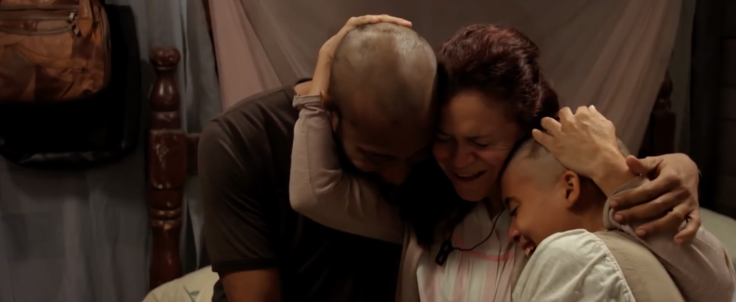
When Dominican director Angel Muñiz announced in the local press that his new film "Y A Dios Que Me Perdone" would be broadcasted on Television instead of screened in theaters, no one could understand this unusual concept in the Dominican Republic.
After the movie ended, it got very good ratings but even better were the comments from thousands of Dominicans who felt identified with the exposure of so many problems of corruption and internal crime in the National Dominican Police and the authorities who "represent" the country in disadvantage of the poor who succumb in ignorance in the streets of this Caribbean island.
"Y A Dios Que Me Perdone" tells the story of a policeman named Toribio, portrayed by renowned Dominican actor Johnnie Mercedes, who, due to his very low salary -about $200 a month- decides to steal car parts in order to save money to help his wife, Claudia, who has been diagnosed with postpartum leukemia and needs to receive prompt treatment for her cure. Toribio and Claudia have three children: twins of seven months and a thirtheen year-old teenage girl.
The desperation of not receiving help from the authorities, the absence of a good health system and the lack of education make him incur in illegal actions to prevent the death of his wife.
This film exposes the nerve with which the political class and the majority of the authorities "control the crimes at their convenience in an act without shame and devoid of scruples," as explained in the movie.
It shows a man who is driven by the despair of not finding help; a sick woman who cries out to her husband to not get into problems with justice; a teenage daughter who urges her father to find money in any way and who tries to collaborate to help her mother at the same time; clinics that demand the purchase of blood instead of accepting free donors making up thousands of excuses; a TV host who only blames the assailants and thieves from the "ghetto" but never points out the members of powerful entities who always seek for their own benefit; and of course a film director, Ángel Muñiz ("Un Pasaje de Ida," "Nueba Yol"), interested in seeing changes in his country and seeking to open the eyes of the millions of citizens who "dance" a constant Merengue without "knowing the lyrics of the song."
The film is undoubtedly one of the best made in the Caribbean, worthy of a foreign film nomination in any international award. Amazing acting, crude but well-cared panoramic exhibitions of the city in a touching, exciting and surprising social empowerment story you shouldn't miss.
Enjoy the complete movie below:
© 2025 Latin Times. All rights reserved. Do not reproduce without permission.




